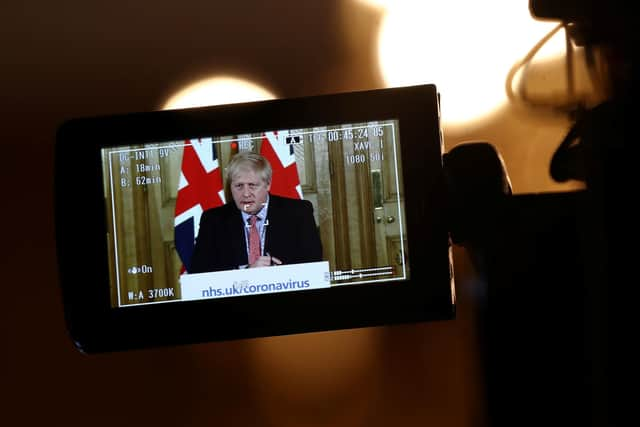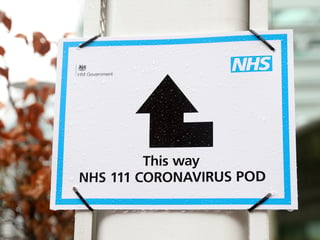Coronavirus: Why the UK are not closing schools yet as Covid-19 cases hit 590
and live on Freeview channel 276
The Prime Minister confirmed schools in the UK will not be closed but said the situation could change as the disease continues to spread.
Mr Johnson said the Government is following the advice of scientists.
‘We are not, repeat not, closing schools now,’ he said.


Advertisement
Hide AdAdvertisement
Hide Ad‘The scientific advice is that this could do more harm than good at this time but of course we are keeping this under review and this again may change as the disease spreads.’
Cases of coronavirus have risen to 590 across the UK – with 15 cases in Hampshire now.
Mr Johnson did however add that school trips abroad should be stopped.
There are concerns that school closures could mean parents would have to stay at home to look after children, raising challenges in terms of time off work and pay.
Advertisement
Hide AdAdvertisement
Hide AdOther concerns include some parents who work in the NHS being absent from the healthcare service at a time of great need, and the potential exposure of grandparents to the disease if they are drafted in to look after sick children.
The decision not to close schools in Great Britain and Northern Ireland comes on the same day as the Republic of Ireland announced that schools and colleges there will close for a fortnight from Thursday evening, as part of their measures to tackle the Covid-19 outbreak.
Stormont First Minister Arlene Foster and deputy First Minister Michelle O'Neill defended the decision not to close schools in Northern Ireland, despite the fact the rest of the island's schools will shut.
Mrs Foster said the difference between the jurisdictions was that there had been community transfer of the virus in the Republic but this has not yet happened in Northern Ireland.
Advertisement
Hide AdAdvertisement
Hide AdMs O'Neill acknowledged the situation was 'confusing’ but said: ‘We don't believe at this minute in time that that is the right step to take (to close schools).’
She added that ‘inevitably’ the situation might progress to one where closing schools will have to be considered.
Coronavirus: the facts
What is coronavirus?
COVID-19 is a respiratory illness that can affect lungs and airways. It is caused by a virus called coronavirus.
What caused coronavirus?
The outbreak started in Wuhan in China in December 2019 and it is thought that the virus, like others of its kind, has come from animals.
How is it spread?
Advertisement
Hide AdAdvertisement
Hide AdAs this is such a new illness, experts still aren’t sure how it is spread. But.similar viruses are spread in cough droplets. Therefore covering your nose and mouth when sneezing and coughing, and disposing of used tissues straight away is advised. Viruses like coronavirus cannot live outside the body for very long.
What are the symptoms?
The NHS states that the symptoms are: a dry cough, high temperature and shortness of breath - but these symptoms do not necessarily mean you have the illness. Look out for flu-like symptoms, such as aches and pains, nasal congestion, runny nose and a sore throat. It’s important to remember that some people may become infected but won’t develop any symptoms or feel unwell.
What precautions can be taken?
Washing your hands with soap and water thoroughly. The NHS also advises to cover your mouth and nose with a tissue or your sleeve (not your hands) when you cough or sneeze; put used tissues in the bin immediately and try to avoid close contact with people who are unwell. Also avoiding touching eyes, nose and mouth unless your hands are clean.
Should I avoid public places?
Most people who feel well can continue to go to work, school and public places and should only stay at home and self isolate if advised by a medical professional or the coronavirus service.
What should I do if I feel unwell?
Advertisement
Hide AdAdvertisement
Hide AdDon’t go to your GP but instead call NHS 111 or look online at the coronavirus service that can tell you if you need medical help and what to do next.
When to call NHS 111
NHS 111 should be used if you feel unwell with coronavirus symptoms, have been in a country with a high risk of coronavirus in the last 14 days or if you have been in close contact with someone with the virus.
Sources: World Health Organisation and NHS
Comment Guidelines
National World encourages reader discussion on our stories. User feedback, insights and back-and-forth exchanges add a rich layer of context to reporting. Please review our Community Guidelines before commenting.
